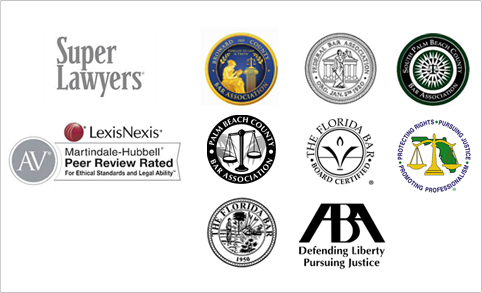



Recently, I received a call from a condominium property management company, regarding access to the building. Most of the building’s residents are Florida snowbirds, and many were inviting family members, located in the Northeast, to relocate to Florida, so as to escape that area’s higher concentration of COVID-19 diagnoses. The management company wanted to know if they had an obligation or the right to screen visitors for fever or other symptoms, so as to protect healthy residents. Our opinion was that without a governmental edict, they were prohibited from screening the health of visitors and could not interfere with a unit owner’s property rights.
We also received calls from commercial landlords, wanting to know what obligations they had to protect the health of their tenants in today’s environment. Generally, landlords have some degree of responsibility in the protection of an occupant’s health and safety, this includes taking reasonable steps to protect commercial tenants and their customers.
But who or what is the arbiter of what those steps should be? The property management agreements and the leases we typically draft and litigate make no reference to global or national pandemics. Currently, there are no directives from government as to leased premises or multi-family dwellings. Although no one expects either landlords or property managers to be on the front line of preventing the spread of this virus, there are a number of steps that may be perceived as good practices and a sense of heightened responsibility. While owners can’t control what happens in a tenant’s or owner’s unit, the common areas are certainly places where they can take a more proactive role.
Though it is critical for buildings to remain operational, commercial landlords and property managers need to monitor their own on-site staff. In the event someone falls ill or exhibits symptoms, they should be removed from the premises immediately. Healthy custodial staff and porters should be given directives to thoroughly clean and disinfect, on an increased basis, those surfaces that come in contact with tenants, unit owners and their guests. Further, ensure that bathrooms are well-stocked with soap and touch-less paper towel dispensers, and hand sanitizer should be made available in common areas. To increase awareness, posters and other materials, readily available from the Centers for Disease Control or local public health agencies regarding the ways individuals can reduce the spread of the virus, should be prominently displayed in all common areas.
We also believe that communication in these peculiar times is paramount. We suggest providing written communication to tenants and unit owners as to the heightened steps that have been implemented. In addition, in the case of businesses that continue to operate, landlords should request that the tenants adopt and share with them their own internal protocols for health and safety. Finally, periodic emails alerting occupants about the status of governmental closures and how it may impact occupancy will be key to effectual management.
As a final word, legally we are in unchartered territory, there are no statutes or cases that provide guidance. This article only addresses these important issues in general terms, and the duties and obligations of both commercial landlords and property managers may be either expanded or diminished, based upon the terms of a particular lease or management agreement. For a clarification of obligations, we suggest a thorough review of your lease or management contract or a call to an attorney versed in this area of the law.

Boca Raton
7777 Glades Road
Suite 400
Boca Raton, Florida 33434
Phone (561) 477-7800
Fax (561) 477-7722
Contact Us
Client Portal
Terms and Conditions
Privacy Policy
Web Accessibility
Contacting Shapiro, Blasi, Wasserman & Hermann, P.A. or any individual Shapiro, Blasi, Wasserman & Hermann, P.A. attorney or employee via the internet does not create an attorney-client relationship without our prior written agreement.
Please do not send us any information you regard as confidential unless and until we have agreed to a formal attorney-client relationship.
Information conveyed prior to establishing an attorney-client relationship is not privileged or confidential.
You should also be aware that information you convey to Shapiro, Blasi, Wasserman & Hermann, P.A. via the Internet may not be secure.
Copyright 2025 Shapiro, Blasi, Wasserman & Hermann, P.A. All Rights Reserved
Shapiro, Blasi, Wasserman & Hermann, P.A., with offices located in Boca Raton, Florida, is a full service law firm with practice areas including Commercial Litigation; Labor and Employment; Product Liability; Construction Litigation; Real Estate Transactions and Litigation; Business Transactions and Litigation; Family Law; Wills, Trusts and Estates; Healthcare; ADA Public Access Claims and Compliance; Bankruptcy and Creditor's Rights; Probate, Trust and Fiduciary Litigation; and Appellate Matters. We represent clients throughout Florida and nationwide.
We are a debt relief agency. We help people file for bankruptcy relief under the Bankruptcy Code.
Please review the privacy policy along with the terms and conditions of our site. Web Development by IWD Marketing